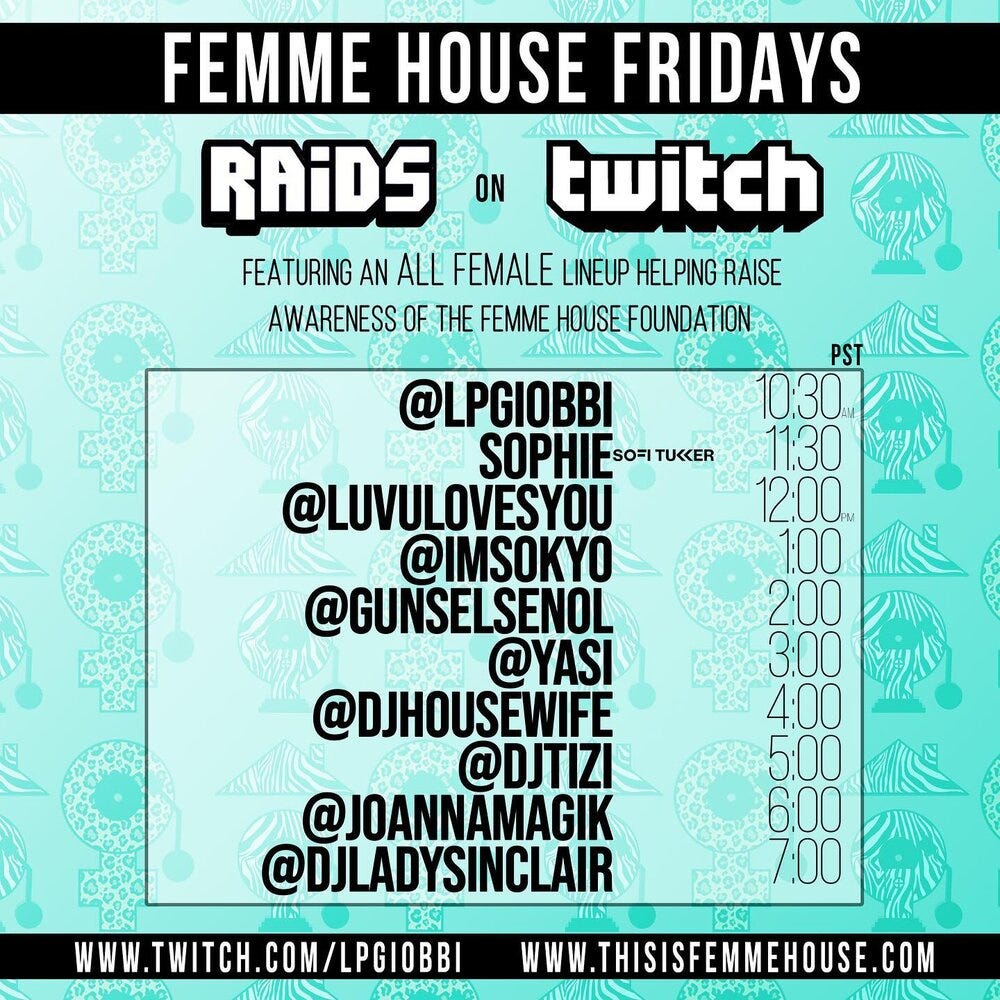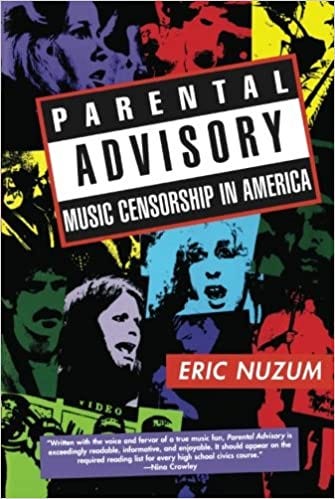Why Things Don’t Work….or....You Get What You Ask For
One of the reasons podcasts fail is because creators forget to make a place for the audience nor ask them for help.
I cringe whenever I (or anyone else) refer to The Audio Insurgent as a “newsletter.” The main reason is that it really doesn’t contain anything that could be defined as news. There are a number of very good newsletters about podcasting that I (and many, many others) read...and I see no need for me to do a lesser version of those.
I’ve been keeping a list of other potential ways to refer to The Audio Insurgent. I’ve finally landed on “dispatch.” The Audio Insurgent is a dispatch and the individual posts/articles/whatever will also be a dispatch. That seems to fit. I “dispatch” with ideas that have been floating in my head. I “dispatch” these ideas from my brain to yours. It works.
Therefore, welcome to Dispatch #9 of The Audio Insurgent.
Today I have a few things: at the end is a bunch of small items that have been rattling around in my brain. I’ll start with one big thing and another related thing...
[MAIN BIG THING: WHY THINGS DON’T WORK: YOU GET WHAT YOU ASK FOR] You’ve probably noticed that when someone does something successful, everyone rushes in to try to duplicate what they did: their version of The Daily or their version of Dirty John or their version of How I Built This and so on. But it is rare for people to look at things that didn’t work out and try to understand why.
I do this all the time. And I find that I can learn a lot more, a lot faster, by learning from my own mistakes and the mistakes of others.
So last week I started writing something about the current state of the episodic narrative series--and what we can learn from those that aren’t successful. 4,000 words later, I realized that I was actually writing what should be a series of posts, looking at the common fail points of different types of podcasts. So that’s what I’m doing, starting today: Why things don’t work.
To begin, we’ll look at one of the least obvious, but most important across all podcast formats and genres: the absence of a community mindset. To boil it down to its essence: You get what you ask for. Not what you assume is happening or you assume you’ll get...what you specifically ask for.
I recently got an email from a woman working for a prestigious organization that has put out a few podcasts and was looking to hire a consultant to help them grow their audience for those podcasts. Downloads were okay, she said, but given the rep of their organization, they should be doing better.
I get some version of this email about once a week. And in three years of doing consulting, I’ve never agreed to work with any of them. This happens because I often start off our first conversation saying, “You don’t have a marketing problem.”
I told her that I’d listened to a few episodes and it was pretty obvious that they didn’t know who they were speaking to. Like many people, they thought their podcast was “for everyone” (meaning, it actually means nothing to no one). The podcasts were what I call “show and tell” podcasts: produced to “show off” the organization’s people and work. I suggested that they should spend their time and resources sharpening the editorial perspective of the show and figuring out how to orient to their chosen audience.
“But we think the podcast is great as it is,” she replied.
She told me that they wanted to know how to grow their audience.
“I just want you to tell me how to spend my ad dollars,” she said.
I told her that beside purchasing promo spots in other podcasts, I had never seen a single dollar spent on marketing a podcast that I felt paid off.
“So, how are you supposed to grow the audience?” she asked.
“One listener at a time,” I replied.
I’m fond of telling podcast creators that if they think their job is to produce an audio file and put it out on the internet, they are wrong. That is part of their job. The other part is building, nurturing, and maintaining the community around it.
How do you build an audience? You make one. You go where they are and invite them to be a real, engaged, substantive part of your show. This isn’t lip service; it has to be real.
So not only are you an audio producer, you are kinda like a party host.
So many podcasters miss this point. They put a lot of time and treasure into creating a podcast, pitch it out in the world, and never once give a thought to the mindset that’s necessary to build the audience that will sustain that work and make it a success.
The fail point is forgetting about the audience.
And this isn’t a box-checking exercise where you do something once and then move on. It has to be part of everything, every episode, every day.
It is important to remember that while there are 2 million podcasts (okay, arguably more like 1.2 million podcasts), there are really 2 million niches. Two million groups of people who share an interest, point of view, or problem that a podcast can solve.
And again, this really isn’t a marketing exercise, it is a community-building exercise. Like it or not, if you make a podcast, this is your world. Ignore it at your own peril. And if you have experience in other forms of media, everything you have previously defined as listener or audience engagement: toss it. This is next level stuff.
You need to reach out and ask them to engage. You need to make space for them and ask them to be part of making the podcast. You need to ask them for their support. You need to ask them to come back (and give them a reason to come back). You need to ask them to help reach other listeners.
If you don’t do this, then don’t be surprised when none of those things happen.
You get what you ask for.
(Next time we’ll look at common fail points specific to episodic narrative series.)
[A RELATED THING: ANOTHER SPIN ON “YOU GET WHAT YOU ASK FOR”] My wife is a big supporter of Femme House, a non-profit that teaches DJ skills to women and members of marginalized communities (it really is a fantastic organization). One of their fundraising and awareness activities is Femme House Friday, where a rotation of DJs perform and pass off to each other.
Since my wife watches using my Amazon account, I noticed a lot of sub tokens being purchased (subs are subscriptions--a way to view a higher quality stream sans advertising, plus the ability to post in the chat stream)...way more than my wife could use herself. That’s when I learned about the Twitch tradition of gifting subs--where you basically give the stranger a gift of a one-month subscription as an anonymous thank you for being part of the channel they are visiting (and the channel’s community). The gift supports building the community as well as supporting the creator. Everybody wins and walks away feeling good. My wife received one once, and was so taken by it that she’s become a regular gifter herself.
I find this so fascinating and have been thinking alot about how this vibe could/should apply to podcasting. I was talking with Katherine Goldstein, who produces The Double Shift and brought this up. She was planning an episode where she and her co-host speak openly about the finances of their podcast ventures. Katherine decided to take some inspiration from the Twitch sub concept and ask her listeners not only to support her show, but consider doubling their gift to provide a subscription to a community member who might not be able to afford it. Most people just give the basic membership level, but she figured it was worth a try.
Since she did this, half her contributors are now pledging double to support a free subscription for someone else. That’s a 50% increase in her average gift by just including that simple option in her ask.
And I’m sure Katherine isn’t alone. The people who love YOUR podcast would probably do the same thing. Remember that when someone recommends a podcast to someone else, what they really want to share is the way the podcast made them feel. It isn’t so much “you will like what they say” as it is “you will like how listening makes you feel.” That feeling is contagious. It’s what really connects you to your audience.
And, as we know, a significant source of revenue for podcasts are the people who appreciate your work so much that they’ll give you money they aren’t required to give you--just to help you make those moments possible. And for some (including half of Katherine’s givers) it is so valuable that they want to help others not only hear it, but be a part of its community.
But you’ll never know, unless you ask.
[SMALL THING: A BUNCH OF RANDOM STUFF]
A few smaller items that really don’t need fleshing out further.
More on Clubhouse: A few “dispatches” ago I wrote about Clubhouse. Since then, I’ve participated in a few different Clubhouse chats. To be honest, it kind of feels like a badly organized conference call. Not sure I see this as the future of anything, except maybe the future of badly organized conference calls. I found myself thinking, “You know what this platform needs? Someone who knows how to produce a broadcast conversation.” Then I looked around and was kind of shocked at how few radio stations and radio talent are using Clubhouse to connect to listeners (and potential listeners). How can that be? I know that there are tons of broadcasters who are not only aware of Clubhouse, but go there to watch, then wring their hands about what this could mean. So, if you are so concerned about missing out, why aren’t you in there and participating??? If you haven’t hung out in Clubhouse, trust me, a good broadcaster who knows how to frame an audio conversation would rock that space. Same goes for Twitter Spaces and whatever Facebook is working on too. So, why are they all sitting on the sidelines and letting these new spaces develop without them being part of it? Just blows my mind how passive radio can be about opportunities. Few things aggravate me more than people who expect a permission slip to try something new. Get out there.
West Cork: My last “dispatch” focused on the release of West Cork--and how satisfying it is to see it out in the world. It has been even more gratifying to see how the world has taken to it. It made it to the Top 5 everywhere in the English speaking world, and made it to the top of the true crime charts in countless countries on six continents (when Antarctica has its own podcast charts, then it will feel complete). And mind you, all of this happened with ZERO traditional marketing and promotional support--it was all word of mouth. Thought, admittedly, having Chuck D shout out the show doesn’t hurt. It is incredibly, incredibly rare to have work grow that much organically, but it is nice to see it is still occasionally possible.
Frequency Boost: I really struck a nerve with my latest column on public radio, Frequency Boost. This time focusing on the archaic, old media practices used by public radio stations on the weekends. Most stations offer a patchwork of one-hour programs, of limited/mixed appeal. It is expensive, impossible to promote, and doesn’t bring in or reach the audience that most programmers think. In fact, there is now more than 20 years of audience data saying these practices don’t work--and worse--take up resources that could be used for contemporary innovation. The column got a ton of comments and messages. About 75% came from programmers who felt put on the defense. So be it.
Amplifying voices: And finally, nothing can jumpstart a career like recognition of your work via an award. To that end, our company, Magnificent Noise has recently made a donation to the The Podcasting, Seriously Awards Fund. If you aren’t familiar, Lantigua Williams & Co. has partnered with AIR and Pacific Content to support independent BIPOC, Queer and Trans audio producers in submitting high-quality work to media/journalism awards. The Podcasting, Seriously Awards Fund helps independent U.S. and Canada-based audio professionals submit work to key Canada and U.S. competitions by covering submission fees for producers, editors, and other creators. The Podcasting, Seriously Awards Fund is committed to supporting 200+ producer award submissions each year, disbursing at least $20,000 annually. We donated not just to support this amazing idea, but to encourage others to do the same, at whatever level feels right.
You can learn more, apply, and support at https://www.podcastingseriously.com/fund
One more more mini-item:
This week marks the 20th anniversary of the publication of my first book, called Parental Advisory, a cultural history of music censorship in America.
I don’t really recommend this book to people, as reading it today makes me cringe. I was still in my 20s when I wrote it and, frankly, had a lot to learn about journalism and writing (arguably I still do and always will). But this book changed my life in pretty much immeasurable ways. It opened up so many doors to me, both in audio and otherwise, including, eventually, even to this “dispatch.”
While it is far, far from my best work, the anniversary makes me feel very grateful to this book and I just wanted to say that.
If you are ever interested in reading one of my books, beyond my book on podcasting, I usually recommend this one.
Okay, that’s it for this “dispatch”
If you read this somewhere other than your inbox, could you consider subscribing? It’s free.
Make great things. I’ll be listening.
--Eric






